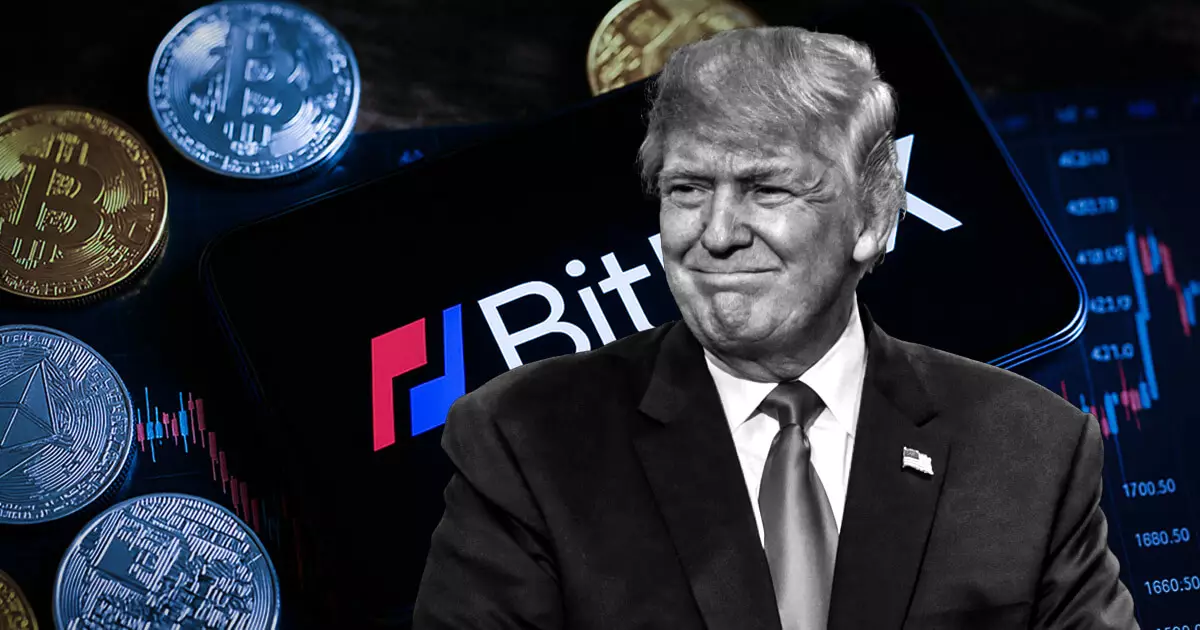On March 27, 2023, former President Donald Trump made a bold move by pardoning the founders of BitMEX—Arthur Hayes, Benjamin Delo, and Samuel Reed—who had previously admitted to serious infractions against U.S. anti-money laundering laws. It has raised several eyebrows, as this decision not only affects the individuals involved but sends a powerful signal to the burgeoning world of cryptocurrency regulation. This act of clemency raises critical issues about the accountability of leadership in a rapidly evolving financial landscape and suggests an emerging detachment from existing legal frameworks.
The trio had admitted to shortcomings that allowed their cryptocurrency exchange to foster an environment rife for illegal activities. With admitting guilt comes a certain level of responsibility, but the pardons have cast doubt on whether those in leadership positions will be held to the standards of law. The pardoning of individuals who knowingly engaged in practices that flouted regulations sets a dangerous precedent, indicating that high-profile figures could escape the repercussions of their actions. This lackadaisical approach to regulatory compliance hints at a broader cultural problem within the cryptocurrency space: a reluctance to abide by rules that protect the financial system and its participants.
The Flaws in the Regulatory Framework
In his remarks following the pardons, Delo characterized the charges against him and his colleagues as stemming from an “outdated law” and a “politicized enforcement effort,” a dismissive attitude that deserves scrutiny. While it is undeniable that some regulations may lag behind market innovations, it doesn’t excuse the violations that these founders committed. The argument that they were made scapegoats is indicative of a broader narrative that seeks to undermine the seriousness of financial regulations. Markets thrive on stability and trust, qualities that are utterly compromised when companies operate in ambiguity concerning compliance.
BitMEX was one of the first significant derivatives exchanges in the crypto industry, known for its high-leverage offerings and minimal registration demands. During its rise, billions in transactions flowed through its platform, attracting users globally, including many from the United States. However, the exchange’s leadership was well aware of their failure to enforce a ban on U.S. customers, a violation that ultimately led to federal investigations. Allowing users to register with simply an email address while largely ignoring regulatory standards is not merely a technical error; it signals a reckless disregard for the rules that govern finance and consumer safety.
Political Implications of the Pardons
Trump’s pardons arrive during a time of increasing tension in the discourse around crypto regulation. By choosing to grant clemency to these individuals, the former president implicitly validates the argument that entrepreneurs should not be shackled by legal frameworks that can’t keep pace with innovation. But at what cost? Navigating the complex waters of rapid financial advancement shouldn’t come at the expense of foundational accountability.
Additionally, the actions may reflect an evolving political stance that leans toward a more permissive regulatory environment, aligning with the center-right philosophy that advocates for economic freedom and entrepreneurship. Yet, this must not come at the expense of due diligence and adherence to the law. Giving a free pass to those who willfully circumvent regulations creates a slippery slope that can lead to greater abuses, reducing the integrity of financial markets.
A New Paradigm for Crypto Regulation
The BitMEX case ultimately illuminates a critical conversation that must shape the future of cryptocurrency regulation. As the industry matures, the question of how to balance innovation with rigorous oversight will become crucial. Rather than merely waving off the transgressions of those who operate at the upper echelons of the crypto space, it may be time to rethink how regulations can evolve to provide both flexibility and accountability.
The pardons have sparked a needed debate about the moral and legal responsibilities inherent in leading a financial institution. It cannot be overlooked that the future of cryptocurrencies will rely largely on how well they can integrate into existing financial systems and uphold the rule of law. As the crypto landscape expands, it’s vital that we ensure those crafting its future are held to rigorous standards, lest we invite an era where the reckless abandon of financial misconduct is not celebrated but tolerated. The BitMEX pardons have opened a Pandora’s box that may forever alter the course of regulatory practices in the realm of digital assets.


Leave a Reply